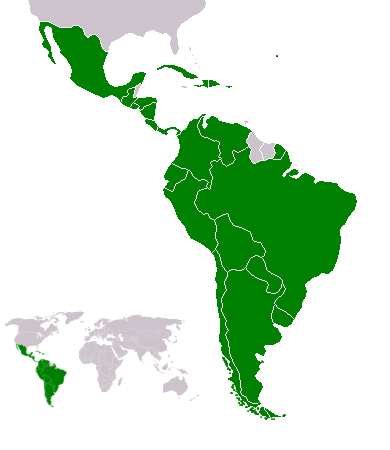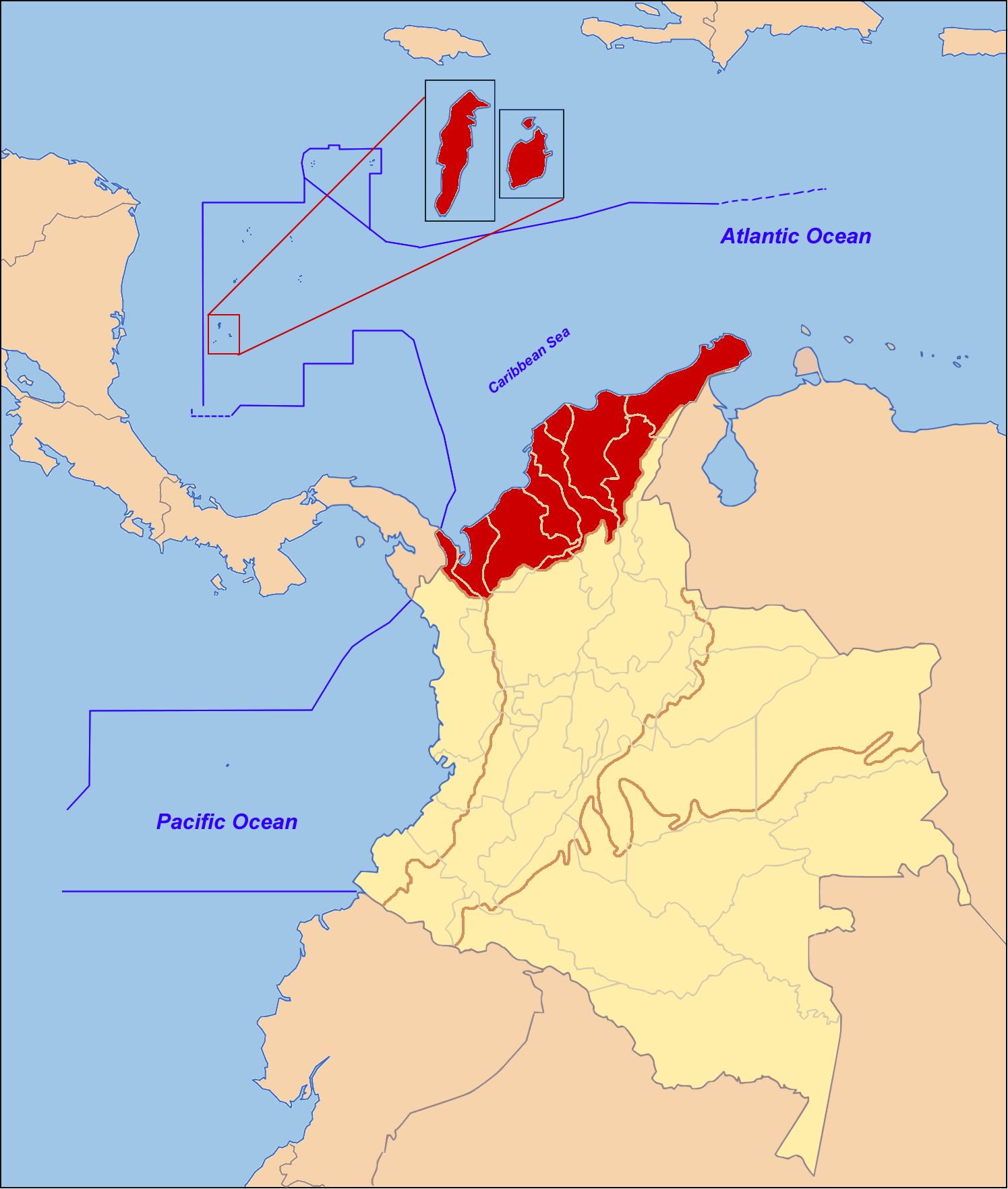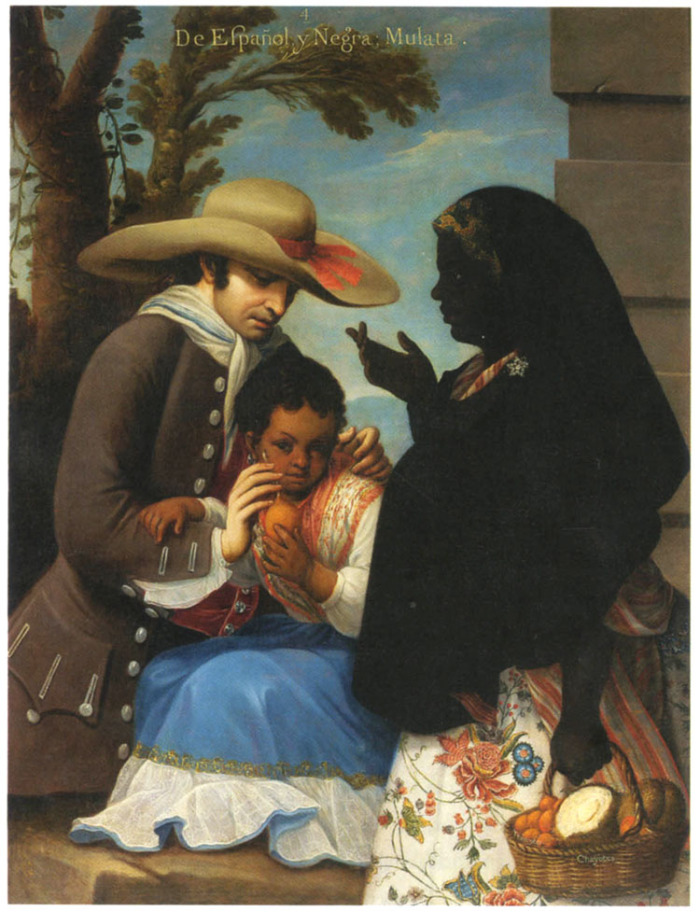|
Afro-Colombian
Afro-Colombians or African-Colombians ( es, afrocolombianos, links=no) are Colombians of full or partial sub-Saharan African descent ( Blacks, Mulattoes, Pardos, and Zambos). History Africans were enslaved in the early 16th Century in Colombia. They were from various places across the continent, including: modern day Congo, Angola, Gambia, Liberia, Ghana, Ivory Coast, Guinea-Bissau, Sierra Leone, Senegal, and Mali. They were forcibly taken to Colombia to replace the Indigenous population, which was rapidly decreasing due to colonialism and genocide. Enslved African people were forced to work in gold mines, on sugar cane plantations, cattle ranches, and large haciendas. African slaves pioneered the extraction of alluvial gold deposits and the growing of sugar cane in the areas that are known in modern times as the departments of Chocó, Antioquia, Cauca, Valle del Cauca, and Nariño in western Colombia. The UNODOC reported 66% of the alluvial gold is illegally mi ... [...More Info...] [...Related Items...] OR: [Wikipedia] [Google] [Baidu] |
Afro–Latin Americans
Afro–Latin Americans or Black Latin Americans (sometimes '' Afro-Latinos'', ''Afro-Latines'', or ''Afro-Latinx''), are Latin Americans of full or mainly African ancestry. The term ''Afro–Latin American'' is not widely used in Latin America outside academic circles. Normally Afro–Latin Americans are called ''Black'' ( es, negro; pt, negro or ; french: noir) and are seen as part of the general Latin demographic, especially in countries where they have a considerable presence. Latin Americans of African ancestry may also be denoted by the prefix ''Afro-'' plus a specific nationality, such as ''Afro-Brazilian'', ''Afro-Cuban'' or ''Afro-Haitian''. The accuracy of statistics reporting on Afro–Latin Americans has been questioned, especially where they are derived from census reports in which the subjects choose their own designation, because in various countries the concept of African ancestry is viewed with differing attitudes. History In the 15th and 16th centuries, ... [...More Info...] [...Related Items...] OR: [Wikipedia] [Google] [Baidu] |
Colombians
Colombians ( es, Colombianos) are people identified with the country of Colombia. This connection may be residential, legal, historical or cultural. For most Colombians, several (or all) of these connections exist and are collectively the source of their being ''Colombian''. Colombia is a multiethnic society and home to people of various ethnic, religious and national origins. Though many Colombians have varying degrees of European, Indigenous and African ancestry. The majority of the Colombian population is made up of immigrants from the Old World and their descendants, mixed in part with the original populations, especially Iberians and to a lesser extent other Europeans. Following the initial period of Spanish conquest and immigration, different waves of immigration and settlement of non-indigenous peoples took place over the course of nearly six centuries and continue today. Elements of Native American and more recent immigrant customs, languages and religions have comb ... [...More Info...] [...Related Items...] OR: [Wikipedia] [Google] [Baidu] |
Caribbean Region
The Caribbean region of Colombia or Caribbean coast region is in the north of Colombia and is mainly composed of 8 departments located contiguous to the Caribbean. MEMO: Natural Regions of Colombia Memo.com.co Accessed 22 August 2007. The area covers a total land area of , including the Archipelago of San Andrés, Providencia and Santa Catalina in the and corresponding to approximately 1/10 of the total territory of Colombia. The Caribbean region of Colombia is home to approximately 9 ... [...More Info...] [...Related Items...] OR: [Wikipedia] [Google] [Baidu] |
Black People
Black is a racialized classification of people, usually a political and skin color-based category for specific populations with a mid to dark brown complexion. Not all people considered "black" have dark skin; in certain countries, often in socially based systems of racial classification in the Western world, the term "black" is used to describe persons who are perceived as dark-skinned compared to other populations. It is most commonly used for people of sub-Saharan African ancestry and the indigenous peoples of Oceania, though it has been applied in many contexts to other groups, and is no indicator of any close ancestral relationship whatsoever. Indigenous African societies do not use the term ''black'' as a racial identity outside of influences brought by Western cultures. The term "black" may or may not be capitalized. The ''AP Stylebook'' changed its guide to capitalize the "b" in ''black'' in 2020. The '' ASA Style Guide'' says that the "b" should not be capitali ... [...More Info...] [...Related Items...] OR: [Wikipedia] [Google] [Baidu] |
Colombian Spanish
Colombian Spanish (Spanish: ''español colombiano'') is a grouping of the varieties of Spanish spoken in Colombia. The term is of more geographical than linguistic relevance, since the dialects spoken in the various regions of Colombia are quite diverse. The speech of the northern coastal area tends to exhibit phonological innovations typical of Caribbean Spanish, while highland varieties have been historically more conservative. The Caro and Cuervo Institute in Bogotá is the main institution in Colombia to promote the scholarly study of the language and literature of both Colombia and the rest of Spanish America. The educated speech of Bogotá, a generally conservative variety of Spanish, has high popular prestige among Spanish-speakers throughout the Americas. The Colombian Academy of Language (Academia Colombiana de la Lengua) is the oldest Spanish language academy after Spain's Royal Spanish Academy; it was founded in 1871. Although it is subject to debate by academics, s ... [...More Info...] [...Related Items...] OR: [Wikipedia] [Google] [Baidu] |
Palenquero
Palenquero (sometimes spelled Palenkero) or Palenque ( pln, Lengua) is a Spanish-based creole language spoken in Colombia. It is believed to be a mixture of Kikongo (a language spoken in central Africa in the current countries of Congo, DRC, Gabon, and Angola, former member states of Kongo) and Spanish. However, there is no sufficient evidence to indicate that Palenquero is strictly the result of a two-language contact. Palenquero is the only surviving Spanish-based creole language in Latin America, if Papiamento (which is often considered to be Portuguese-based) is excluded. Over 6,600 people spoke this language in 2018. It is primarily spoken in the village of San Basilio de Palenque which is southeast of Cartagena, and in some neighbourhoods of Barranquilla. History Origin The formation of Palenquero is recorded from the 17th century with the dilution of the Spanish language and the increase of maroon activity. There are existing records dating from the era of Carta ... [...More Info...] [...Related Items...] OR: [Wikipedia] [Google] [Baidu] |
Afro-Caribbean People
Afro-Caribbean people or African Caribbean are Caribbean people who trace their full or partial ancestry to Sub-Saharan Africa. The majority of the modern African-Caribbeans descend from Africans taken as slaves to colonial Caribbean via the trans-Atlantic slave trade between the 15th and 19th centuries to work primarily on various sugar plantations and in domestic households. Other names for the ethnic group include Black Caribbean, Afro or Black West Indian or Afro or Black Antillean. The term Afro-Caribbean was not coined by Caribbean people themselves but was first used by European Americans in the late 1960s. People of Afro-Caribbean descent today are largely of West African ancestry, and may additionally be of other origins, including European, South Asian and native Caribbean descent, as there has been extensive intermarriage and unions among the peoples of the Caribbean over the centuries. Although most Afro-Caribbean people today continue to live in English, French ... [...More Info...] [...Related Items...] OR: [Wikipedia] [Google] [Baidu] |
Mulatto
(, ) is a racial classification to refer to people of mixed African and European ancestry. Its use is considered outdated and offensive in several languages, including English and Dutch, whereas in languages such as Spanish and Portuguese is not, and can even be a source of pride. A () is a female ''mulatto''. Etymology The English term and spelling ''mulatto'' is derived from the Spanish and Portuguese . It was a common term in the Southeastern United States during the era of slavery. Some sources suggest that it may derive from the Portuguese word (from the Latin ), meaning ' mule', the hybrid offspring of a horse and a donkey. The Real Academia Española traces its origin to in the sense of hybridity; originally used to refer to any mixed race person. The term is now generally considered outdated and offensive in non-Spanish and non-Portuguese speaking countries, and was considered offensive even in the 19th century. Jack D. Forbes suggests it originated in t ... [...More Info...] [...Related Items...] OR: [Wikipedia] [Google] [Baidu] |
Liberia
Liberia (), officially the Republic of Liberia, is a country on the West African coast. It is bordered by Sierra Leone to its northwest, Guinea to its north, Ivory Coast to its east, and the Atlantic Ocean to its south and southwest. It has a population of around 5 million and covers an area of . English is the official language, but over 20 indigenous languages are spoken, reflecting the country's ethnic and cultural diversity. The country's capital and largest city is Monrovia. Liberia began in the early 19th century as a project of the American Colonization Society (ACS), which believed black people would face better chances for freedom and prosperity in Africa than in the United States. Between 1822 and the outbreak of the American Civil War in 1861, more than 15,000 freed and free-born black people who faced social and legal oppression in the U.S., along with 3,198 Afro-Caribbeans, relocated to Liberia. Gradually developing an Americo-Liberian identity, the se ... [...More Info...] [...Related Items...] OR: [Wikipedia] [Google] [Baidu] |
Ghana
Ghana (; tw, Gaana, ee, Gana), officially the Republic of Ghana, is a country in West Africa. It abuts the Gulf of Guinea and the Atlantic Ocean to the south, sharing borders with Ivory Coast in Ghana–Ivory Coast border, the west, Burkina Faso in Burkina Faso–Ghana border, the north, and Togo in Ghana–Togo border, the east.Jackson, John G. (2001) ''Introduction to African Civilizations'', Citadel Press, p. 201, . Ghana covers an area of , spanning diverse biomes that range from coastal savannas to tropical rainforests. With nearly 31 million inhabitants (according to 2021 census), Ghana is the List of African countries by population, second-most populous country in West Africa, after Nigeria. The capital and List of cities in Ghana, largest city is Accra; other major cities are Kumasi, Tamale, Ghana, Tamale, and Sekondi-Takoradi. The first permanent state in present-day Ghana was the Bono state of the 11th century. Numerous kingdoms and empires emerged over the centuri ... [...More Info...] [...Related Items...] OR: [Wikipedia] [Google] [Baidu] |
Sierra Leone
Sierra Leone,)]. officially the Republic of Sierra Leone, is a country on the southwest coast of West Africa. It is bordered by Liberia to the southeast and Guinea surrounds the northern half of the nation. Covering a total area of , Sierra Leone has a tropical climate, with diverse environments ranging from savanna to rainforests. The country has a population of 7,092,113 as of the 2015 census. The capital and largest city is Freetown. The country is divided into five administrative regions, which are subdivided into 16 districts. Sierra Leone is a constitutional republic with a unicameral parliament and a directly elected president serving a five-year term with a maximum of two terms. The current president is Julius Maada Bio. Sierra Leone is a secular nation with the constitution providing for the separation of state and religion and freedom of conscience (which includes freedom of thoughts and religion). Muslims make up about three-quarters of the population, t ... [...More Info...] [...Related Items...] OR: [Wikipedia] [Google] [Baidu] |





